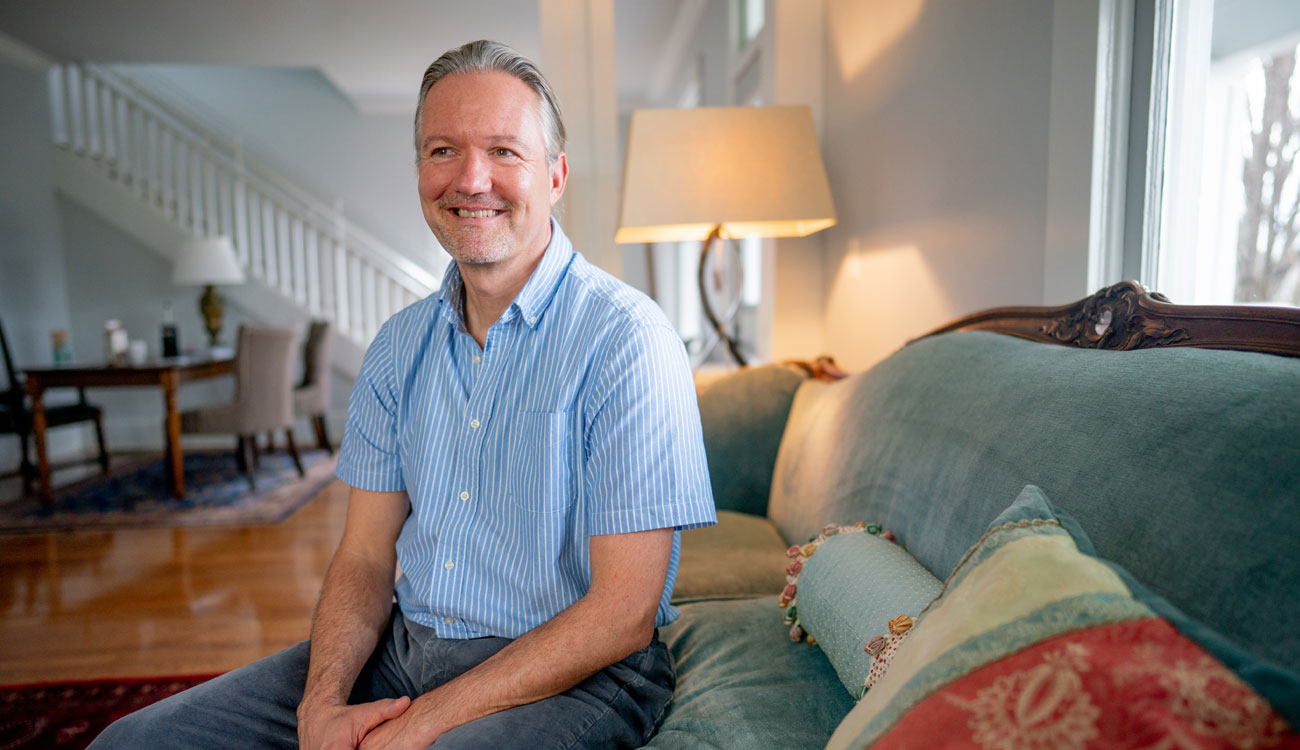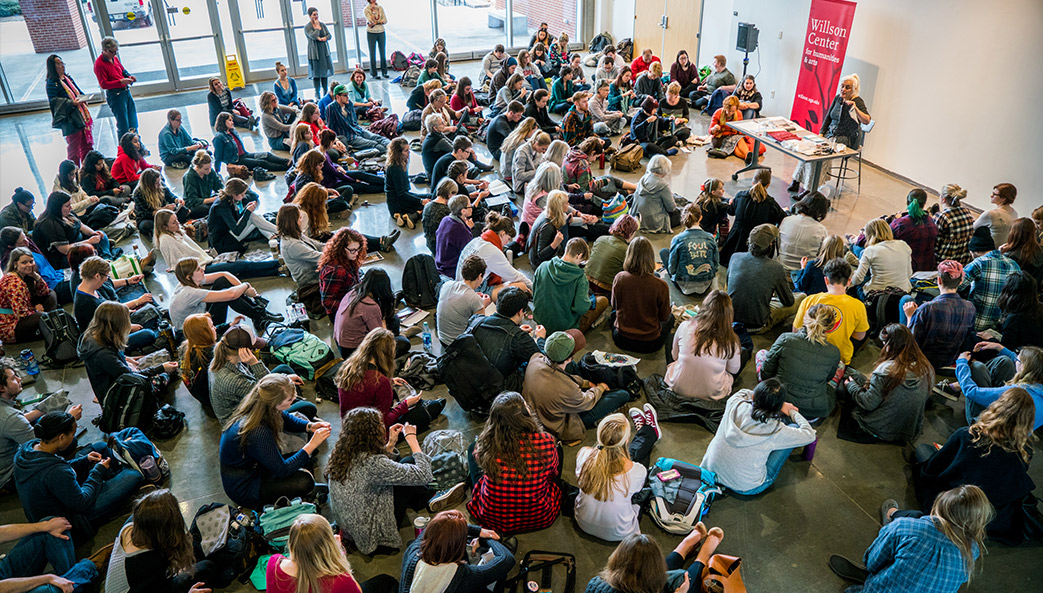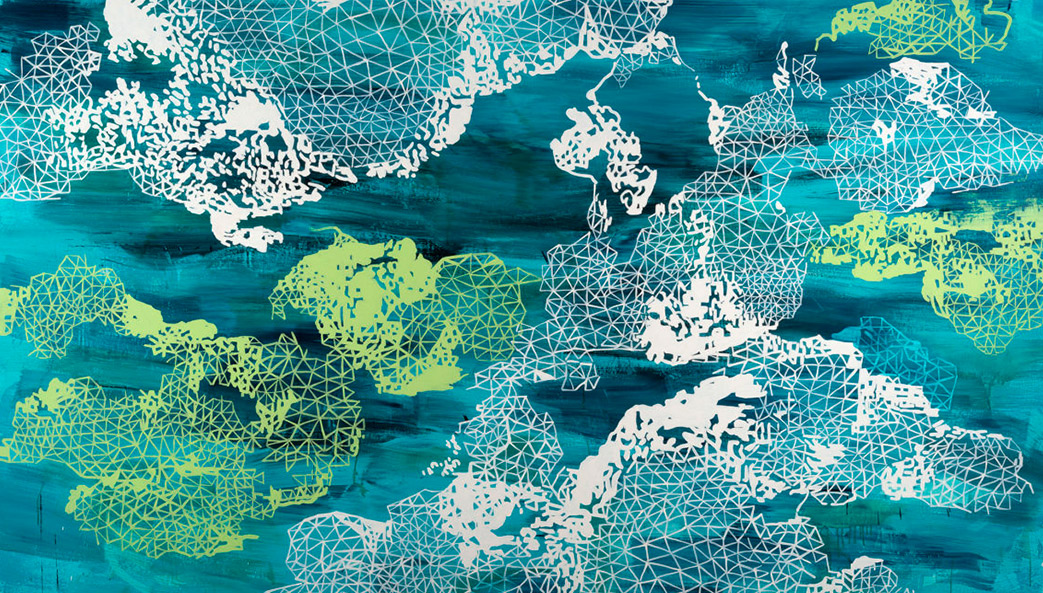The humanities—those fields of inquiry into the human experience, like history, literature, art, philosophy and religion, through which we seek to understand the world as we engage with it—are in many ways the very basis of higher education. Nicholas Allen, Baldwin Professor in Humanities in the Franklin College of Arts and Sciences’ Department of English, is an internationally renowned scholar of Irish literature. As director of the Willson Center for Humanities and Arts, Allen is a leader in the University of Georgia’s efforts to place its humanities research and scholarship at the center of global conversations about who we are, have been and may become.
What are the humanities?
The humanities are a set of practices, experiences and reflections that connect us to ourselves and to other people. They’re acts of empathy, acts of imagination. We undertake them every day: every time we read a book; every time we look at a map; every time we imagine where we are and where we might go. And those disciplines in the university that anchor the humanities—like English, history and philosophy—for me, they’re at the core of what a university is. They help us, as citizens, imagine our future together.
How can the humanities help answer big, planetary questions?
The humanities can help us answer the largest questions because they help us think in the largest ways. They summon us—in all the variety of our imaginations and experiences—to connection and conversation with each other. They give us the powers of reflection to understand the depth of our past. And when we think now of a planet that’s undergoing such stress, with climate and population growth, and the great opportunities that there are in the world now—of being better connected with each other, and sharing cultures and sharing experiences—it seems to me that the humanities are the best way of connecting all those worlds together.
What is the value of an education in the humanities?
We are very lucky that, in the last decade, great efforts have been made to understand the opportunities that an education in the humanities and arts offers for life success. To my mind, the innovations that follow create experiences for an individual student that contribute to a life well lived. It’s a preparation for being able to apply yourself to a diversity of life experiences. The world continues to change rapidly, and the humanities and arts are at the core of shaping a self that is able to understand the world as it changes—to find a place for yourself happily within that world, in community with other people.
What are some of the things you see in students who are engaged with the humanities?
I’m heartened by our students. They surprise me with their ideas, and they challenge me, too. But what really impresses me is their commitment to making a difference, and to using their gifts and their privileges for the betterment of their fellow citizens. I’m really struck by the way in which undergraduates are willing to work with communities to share their experiences and to be active learners, to use their experiences to learn from and help other people.
How does UGA’s reputation in the humanities lift its global standing?
This university has tremendous faculty, and they think about all kinds of questions that are asked by communities around the world. One of my ambitions has been to show how the humanities and arts really power forward the university’s global presence and profile. UGA is not only one of America’s leading public institutions—it’s one of the world’s leading institutions. And the humanities and arts are at the forefront of that.
We’ve been very lucky to have the support of The Andrew W. Mellon Foundation for a new consortium of universities—in North Carolina, Florida, Louisiana and here in Georgia—who are thinking about coastal environments. The communities that live in coastal places are experiencing pressures they never have before, and the humanities, we think, are a way to imagine how to understand the challenges of the future together. This is very much in the tradition of our land- and sea-grant institutions, but it’s forward-facing and connected to the conversations that matter in the world today.
The same is true for our many public humanities initiatives with groups like the National Humanities Alliance and Georgia Humanities, as well as our other projects that the Mellon Foundation has funded. We’re broadcasting the work of UGA humanities faculty and scholars throughout the state, the nation and the world. I feel very fortunate that a major foundation like Mellon has recognized our collective work and supported it. That recognition is very prestigious and we are all grateful for it, just as it pushes us to do more through the emerging intellectual communities we are part of.
What special rewards does an education in the humanities offer students?
That’s a lifelong question to answer. In the most basic sense, there is the freedom of exploring one’s mind, abilities and imagination, in conversation with the imaginations of generations that are long gone and lived in worlds that are very different from our own.
The humanities offer many paths into that life-changing set of experiences. In one sense, you might be provided with the skills to read differently. That’s as important for a lawyer or a doctor as it is for an English student. In another sense, you might be more aware of the diversity of experiences that make for contemporary American society. That might help you in business. Humanities thinking might help you in engineering, when you’re challenged with a problem that you’ve never faced before. I like to think that a humanities education equips you for challenges that you might not face until 10, 20, 30, 40 years after you graduate.
I love it, in poetry classes, when I see a student exposed to a new idea, to a new way of thinking. Long after they forget that poem, that flexibility of mind might help them address a problem in their own life, face a challenge in their own career, or make an opportunity for someone else.






